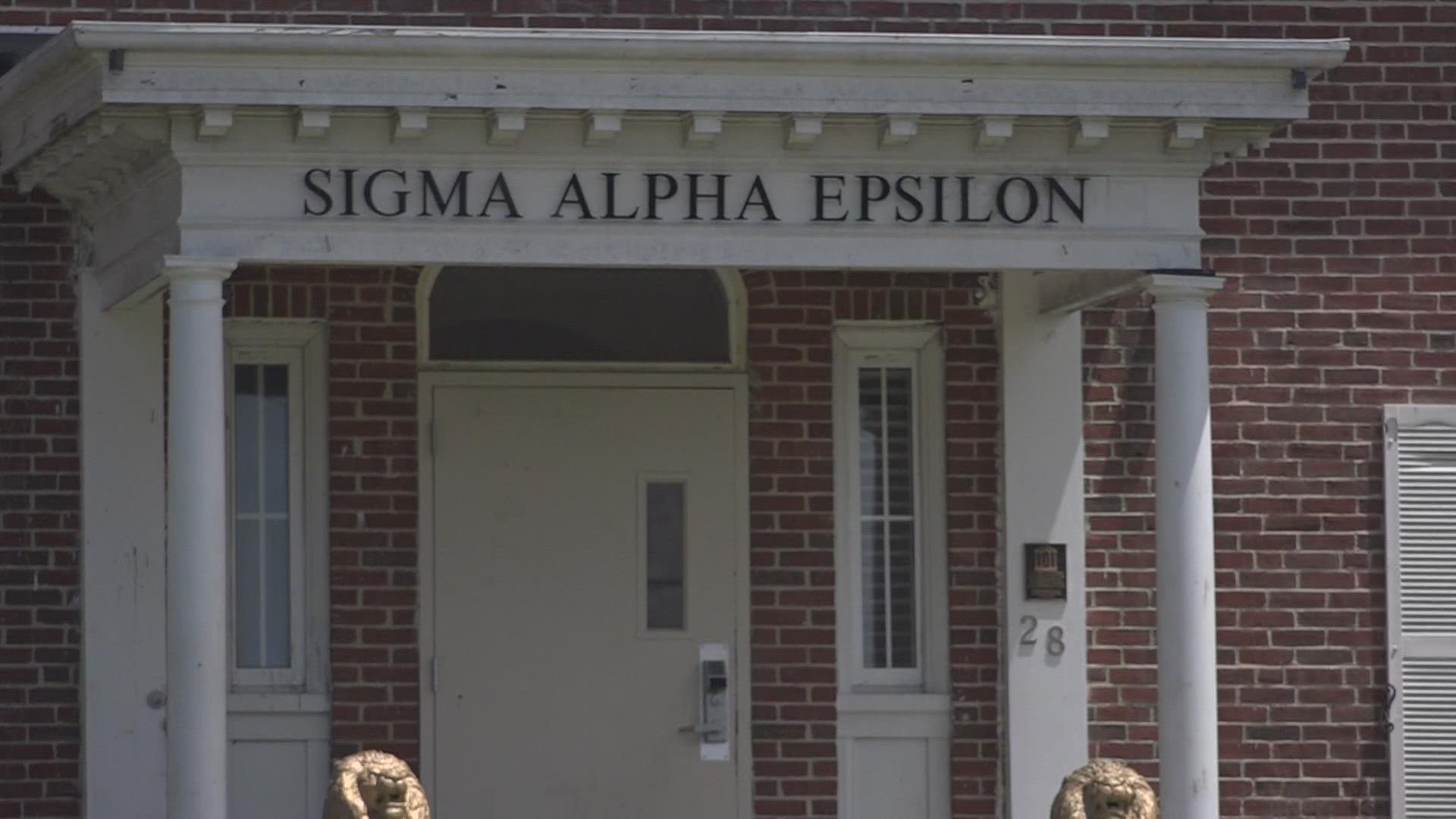DURHAM, N.H. — The Durham Police Department finished its investigation into the Sigma Alpha Epsilon fraternity chapter at the University of New Hampshire Tuesday.
The investigation stems from 46 hazing charges filed against fraternity brothers by the Strafford County Attorney's Office.
The alleged hazing incident occurred at the Sigma Alpha Epsilon chapter house on April 13 just before 9:30 p.m., according to the arrest complaints from Strafford County.
The complaints charge the brothers with a Class B misdemeanor for hazing, which in New Hampshire, would result in a maximum penalty of $1,200.
No jail time is expected for any of the brothers.
Deputy County Attorney Emily Garod is handling all 46 charges, and told NEWS CENTER Maine that some of the brothers charged are hazing victims themselves.
"It is true that actors, subjects, and bystanders were charged with the hazing, as all that behavior is what the NH legislature sought fit to criminalize," Garod wrote in an email. "While I can't get into the nature of the case, if I believed that more serious charges were supported I would have filed more serious charges. There were no serious injuries sustained in the hazing event."
Durham Police told NEWS CENTER Maine over the phone that they completed the investigation into the SAE chapter and handed it over to Garod's office, which refused to provide the finished investigative documents.
For UNH students, the announcement of 46 of their peers being charged with a misdemeanor was a shock.
"I kind of feel shocked, I wasn't expecting anything was going to happen on this campus ... something has to be done about that," Price Luo, a senior at UNH, said.
Luo said he has never seen a fraternity get in this large of a scale of trouble in his four years at the school.
"Those kids do not represent the entirety of UNH, and a lot of people are very positive, hopefully people can learn something from this," Luo said.
In the meantime, the national body of Sigma Alpha Epsilon is condemning the actions of its UNH chapter.
"Upon learning of the alleged incident, SAE immediately issued a cease and desist to the chapter," David Pascarella, SAE communications manager, said. "We are fully cooperating with the local authorities' investigation and have urged all of our members to do the same."
Despite the details of the alleged hazing being barred from the public, Elizabeth Allan, a University of Maine researcher and professor, said hazing on any level is psychologically damaging.
"I think this is something that we really need to work on, is helping everyone understand that there is a broad spectrum of hazing and it can be harmful to everyone involved," Allan said.
Allan oversees the organization StopHazing, which researches harmful situations in school environments.
"Why wait until we have a tragedy ... the laws are intended to send a strong message," Allan said, when asked about the strict hazing laws in New Hampshire, which allow for hazing victims to be charged.
David Bianchi, a national hazing expert and Florida-based attorney, agreed that New Hampshire has strict hazing laws, calling them 'unusual.'
"I have never heard of a case where 46 fraternity members have been charged and arrested at the same time ... the only way you are going to try and reign in hazing is if everyone who is remotely involved stops doing it," Bianchi said.
Several of the SAE UNH brothers turned themselves in to police, and face a first court appearance at 8:30 a.m. on July 13.
While Durham Police have now closed their investigation, the university is still conducting its investigation into the chapter.

